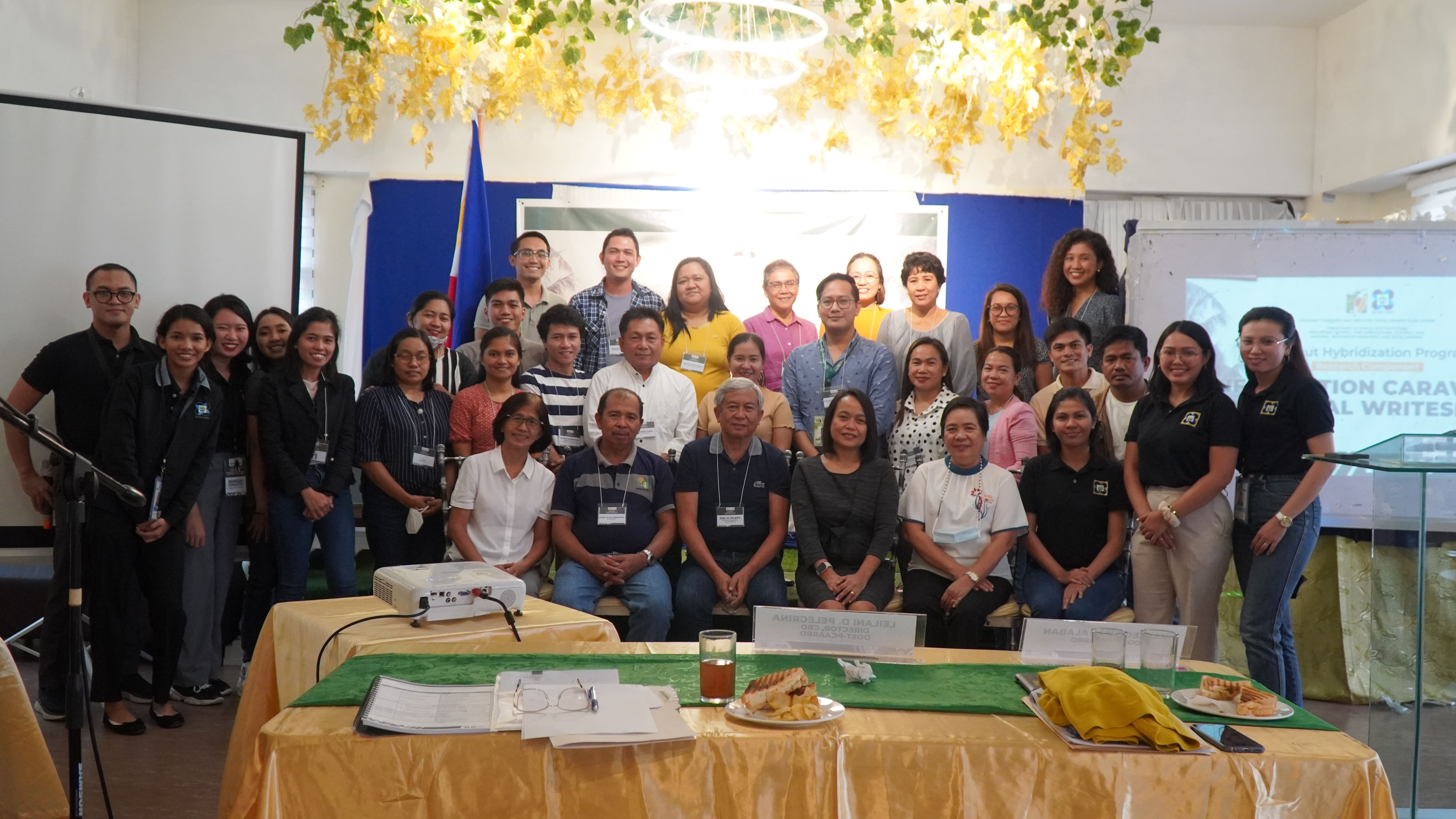Bicol Region and Eastern Visayas have been experiencing a slow decline in their coconut production over the years due to the impact of climate change, emerging diseases, and evolving market.
To help address this, the Philippine Council for Agriculture, Aquatic and Natural Resources Research and Development of the Department of Science and Technology (DOST-PCAARRD) recently embarked on a one-day Regional Information Caravan and Proposal Writeshop held in Legazpi City, Albay to solicit proposals on coconut hybridization.
Coconut hybridization is a technology that produces quality and high yielding coconut hybrids, which can help in addressing above concerns by improving regional production and revitalizing the local industry.
During the caravan, participants received information on the Council’s Coconut Hybridization Program (CHP) Research Component under the Coconut Farmers and Industry Development Plan (CFIDP).
Ms. Alissa Carol M. Ibarra, DOST-PCAARRD Industry Strategic S&T Program (ISP) Manager for Coconut, explained the purpose of the activity and presented a brief overview of the CFIDP programs, with focus on CHP.
Other DOST-PCAARRD representatives from the Crops Research Division (CRD) guided the participants to the DOST-PCAARRD forms and guidelines and the CHP priority R&D areas.
Philippine Coconut Authority (PCA) Regional Offices, represented by Region VIII Manager Joel O. Pilapil and Region V Division Chief Alvin N. Trespeces also presented their respective region’s regional coconut industry situation.
In his presentation, Engr. Trespeces recommended looking at how the farmers are managing the soil nutrient levels in coconut plantations, which is crucial in attaining the hybrids’ productivity. He also suggested analyzing how R&D can address the low germination of coconut seednuts being transported from other areas and the adaptability of coconut hybrids in typhoon-prone areas like Bicol and Eastern Visayas Regions.
Engr. Trespeces also emphasized the importance of information campaigns and trainings to address the existing negative perception of Bicol coconut farmers on coconut hybrids.
Meanwhile, Engr. Pilapil pointed to the difficulty of Eastern Visayas in competing in coconut productivity with other regions despite the region’s having the biggest area of coconut plantings. He said that researchers can possibly address this through coconut hybrid R&D.
Following the information campaign, a writeshop was conducted to allow the participants to craft and fine-tune their R&D proposals addressing region-specific gaps in coconut hybridization.

Director Ms. Leilani D. Pelegrina and other staff of DOST-PCAARRD Crops Research Division as they answer queries and guide the participants during the proposal writing workshop. (Image credit: Crops Research Division, DOST-PCAARRD)
At the end of the writeshop, DOST-PCAARRD received more than ten proposals from PCA, Central Bicol State University of Agriculture (CBSUA), Camarines Norte State College (CNSC), Visayas State University (VSU), Samar State University (SSU), Southern Leyte State University (SLSU), and Biliran Province State University (BiPSU).
These proposals are expected to undergo further review and evaluation prior to their packaging and presentation to the Council’s approving bodies.
The activity was organized by DOST-PCAARRD’s CRD team led by Director Leilani D. Pelegrina. It is the second information caravan following the kick-off held in Laguna and participated by RDIs and SUCs from National Capital Region (NCR) and Regions IV-A and IV-B.
The CRD team will continue visiting other regions to disseminate information on CFIDP CHP and solicit R&D proposals addressing region-specific gaps.

